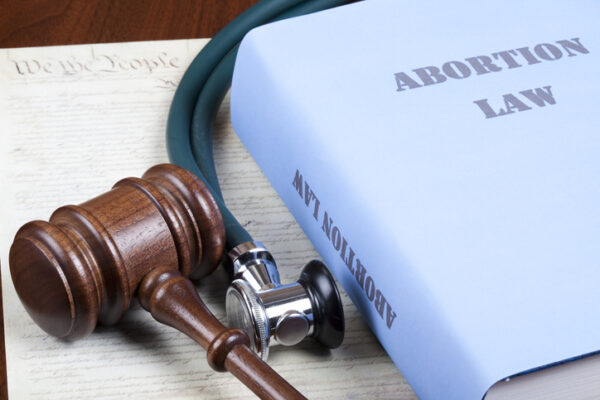
Following the Supreme Court’s Dobbs decision to remove federal protection to abortion, Texas has become a tense battleground. The state and anti-abortion physician groups sued the Department of Health and Human Services in July, claiming federal protections for emergency abortion violate Texas state law.
On Tuesday, a Texas judge agreed.

The Funding Model for Cancer Innovation is Broken — We Can Fix It
Closing cancer health equity gaps require medical breakthroughs made possible by new funding approaches.
The same day, several non-profit groups that support reproductive justice sued Texas Attorney General Ken Paxton and several prosecutors in order to protect their ability to help pregnant Texans obtain safe abortions in other states.
Then, on Thursday, Texas’ trigger ban, the Human Life Protection Act, went into effect. The new law criminalizes performing an abortion unless the pregnant patient is facing “a life-threatening physical condition aggravated by, caused by, or arising from a pregnancy.”
“The litigation is just getting started,” declared Caroline Reignley, a partner in the healthcare practice group at McDermott Will & Emery.
She said the lawsuit filed by the non-profit groups is “just another example of how Dobbs did not end the debate over abortion or limit court intervention.”
Tuesday’s decision from U.S. District Judge James Wesley Hendrix in the Northern District of Texas blocked protections issued by HHS under the Emergency Medical Treatment and Labor Act (EMTALA) for physicians who provide life-saving abortions. Since the HHS guidance was intended as a defense for providers or hospitals who were sued, it is unclear how it will play out now that Judge Hendrix has decided Texas law trumps the EMTALA guidance, Reignley said.
The judge’s decision was based on the fact that HHS did not follow the protocol for issuing guidance under the Administrative Protective Act, including allowing public comment on the rule, not based on a specific case of a doctor or hospital being sued for providing an abortion.
What could happen, Reignley said, is, say a doctor has a pregnant patient who comes to the emergency room and has an emergency medical condition. Then the physician provides an abortion, and the state of Texas tries to bring an action against the doctor and the hospital. In that case, there could be a challenge based on EMTALA guidance versus state law to see the interplay between the two. She expects to see cases like that in the future.
Whether EMTALA is going to preempt a state abortion restriction is going to be determined state by state.
“The district court judge’s ruling is that Centers for Medicare and Medicaid Services and the Office of Inspector General, the two HHS agencies with authority to provide penalties under EMTALA) may not enforce the administration’s interpretation of EMTALA in Texas or against the physicians who brought the action,” Reignley said. “This ruling could theoretically affect HHS’ ability to affirmatively impose penalties (under EMTALA) on Texas providers who fail to provide appropriate stabilizing care to a pregnant patient.”
In the meantime, the threat of criminal prosecution hangs heavy over abortion supporters, as laid out in the suit filed by the non-profit groups. The plaintiffs, including Fund Texas Choice, the North Texas Equal Access Fund, and others, allege that they have been subjected to unfair harassment.
“The threats have been repeated and far-ranging, and the intimidation has chilled helping professionals from providing counseling, financial, logistical, and even informational assistance to pregnant Texans who may need to access abortion care outside of the state,” according to the complaint.
As evidence, the plaintiffs cite a letter sent to law firm Sidley Austin from a group of Texas legislators known as the “Texas Freedom Caucus” threatening felony criminal prosecution against the firm and its partners for reimbursing travel costs of employees ‘who leave Texas to murder their unborn children.’”
The groups are asking the court for preliminary and permanent injunctions against the named prosecutors by prohibiting them from bringing a lawsuit against the abortion groups for any behavior in connection with abortions outside of Texas.
Photo: ericsphotography, Getty Images










